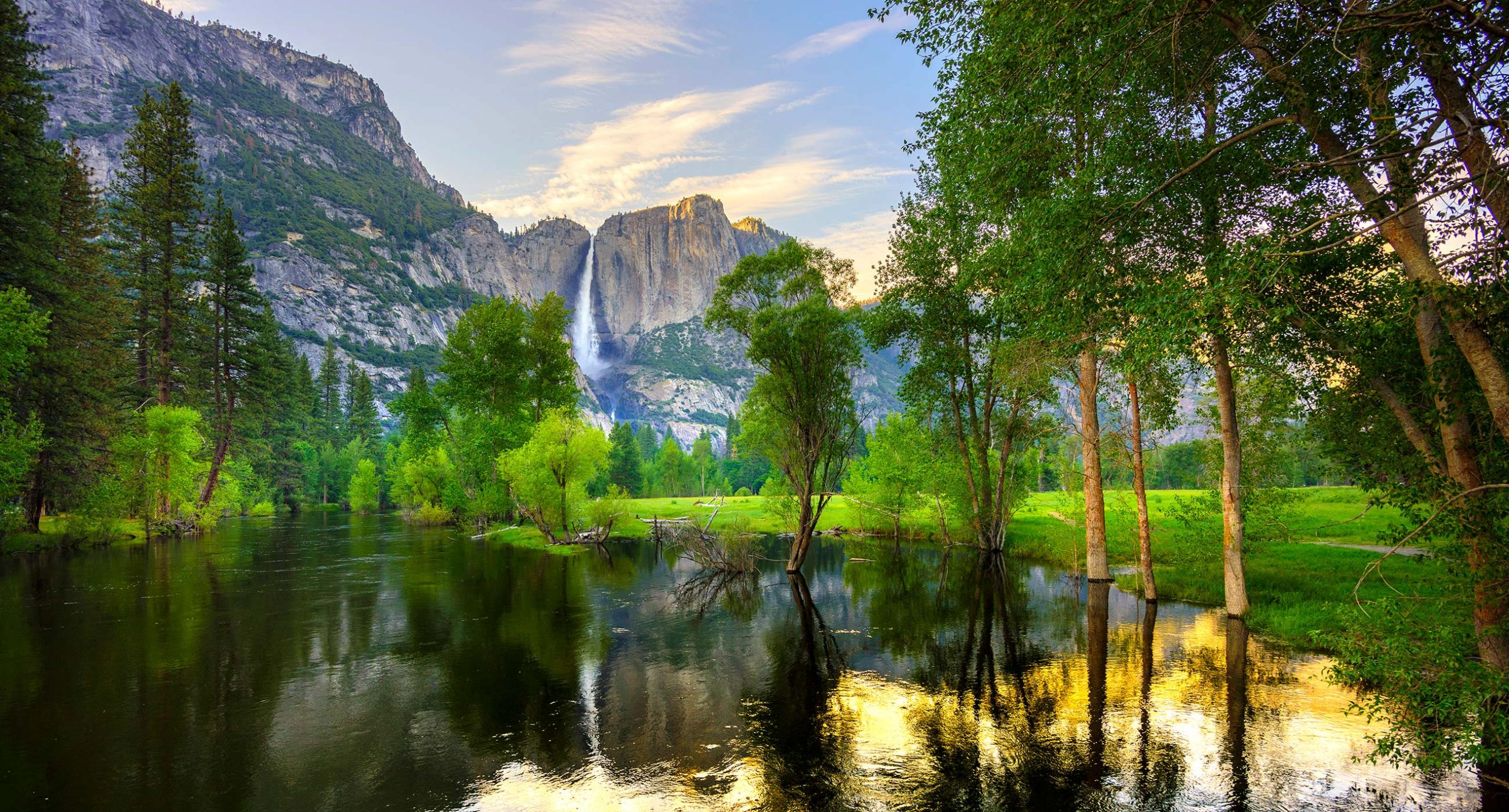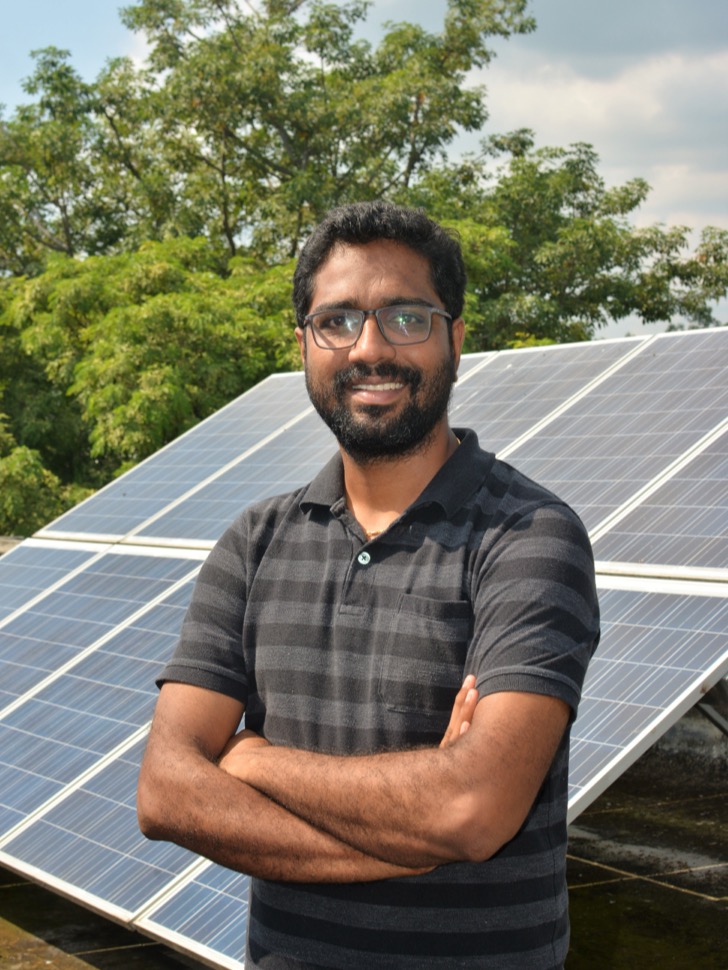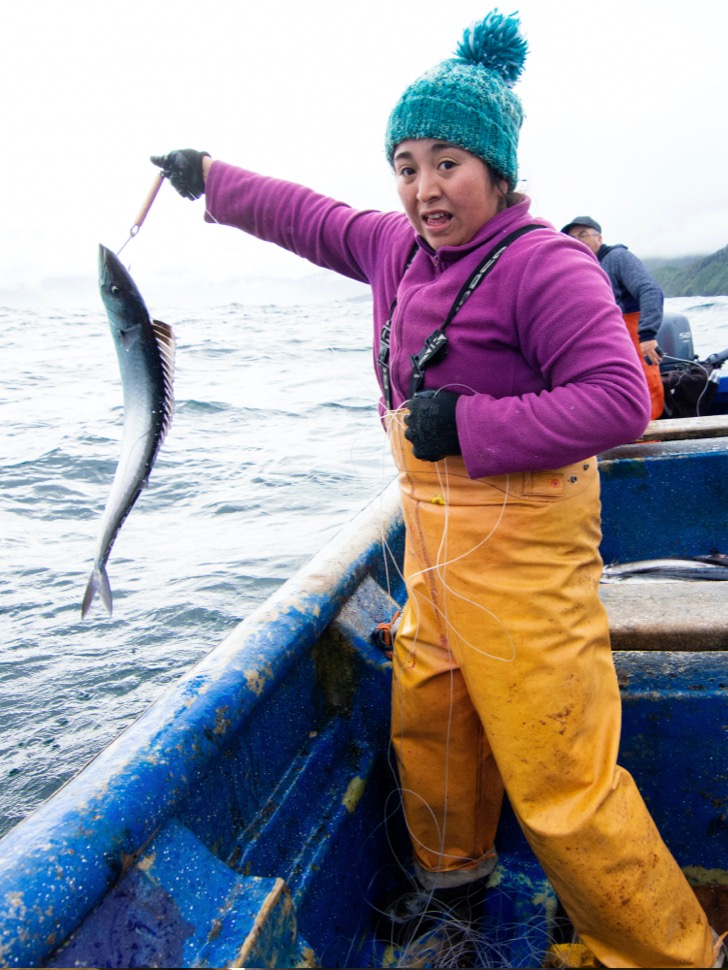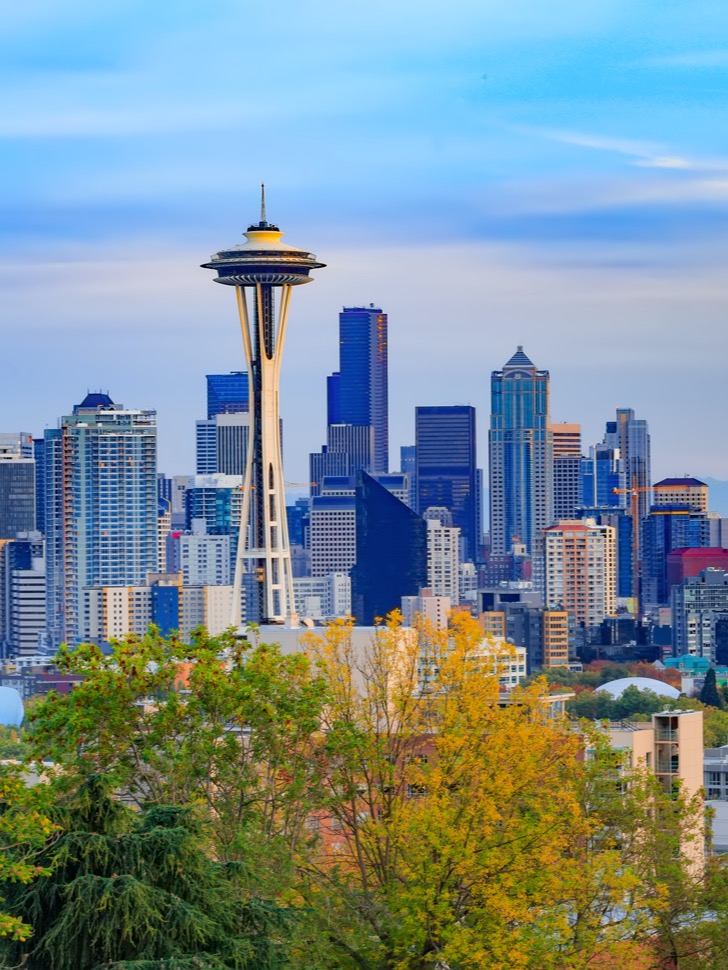
EDF Climate Corps expands to India

EDF’s summer fellowship program, which trains top graduate students to power environmental progress at leading companies and organizations, is now active in three countries crucial to solving climate change. This year’s 149 Climate Corps fellows, our largest cohort ever, worked in the U.S., China and — for the first time — India. The 17 India fellows showed companies including Amazon, McDonald’s and Mahindra & Mahindra ways to slash carbon emissions and build sustainable supply chains. One fellow, Kuladeep Kumar Sadevi (pictured), developed a plan for a leading Indian real estate developer to become carbon neutral, including transitioning to zero-emissions buildings, by 2035. Since 2008, Climate Corps has deployed more than 1,200 young climate leaders to more than 540 organizations.
Supporting community-led clean air efforts
 (Photo credit: Marie D. DeJesus Photography)
(Photo credit: Marie D. DeJesus Photography) Sunnyside is a historically Black neighborhood in Houston where people tend community gardens, occasionally ride horses down the street and frequently look out for each other. It’s also a neighborhood where the city placed two landfills, an incinerator, concrete plants and metal recycling facilities, all of which generate air pollution near homes, churches and schools. Rates of asthma and chronic obstructive pulmonary disease, which can be triggered or exacerbated by this pollution, are among the highest in the city. “We have stories and experiences, but limited data,” says Jo Ann Jones-Burbridge (pictured, center), vice president of the Sunnyside Community Redevelopment Organization. SCRO worked with EDF to install a community owned and operated network of monitors that will detect local air pollution and help identify its sources. “We know that data drives decisions,” says Jones-Burbridge. “When we collect the data, we will inform the community, city, county and state to hold the government accountable in finding solutions.”
A groundbreaking fishing collaboration
 (Photo credit: Costa Humboldt, costahumboldt.org)
(Photo credit: Costa Humboldt, costahumboldt.org) The Humboldt Current, off the west coast of South America, is part of one of the world’s most productive ocean ecosystems, providing more than 10% of fish caught globally. But warming seas and other impacts of climate change are causing fish to move, shifting available catch and potentially sparking international conflict. In a first-of-its-kind collaboration, EDF is helping Chile, Peru and Ecuador share data about changing ocean conditions to develop an online early warning system that will show in real time how climate change is affecting their fisheries. The nations will use the system to adapt how they manage fisheries, protecting marine and coastal ecosystems and safeguarding the livelihoods of 850,000 people.
Fueling more climate friendly skies

If aviation were a nation, it would rank as the world’s sixth-largest carbon emitter, right between Japan and Germany. And emissions from planes are expected to rise rapidly, with fuel consumption projected to double from pre-COVID levels by 2050. To put the industry on a more sustainable flight path, EDF has teamed up with RMI, a clean energy think tank, and corporate partners to launch the Sustainable Aviation Buyers Alliance. The alliance will help decarbonize aviation by accelerating investment in, and adoption of, sustainable aviation fuels. By creating a transparent certificate system, SABA will help companies and airlines identify the sustainable aviation fuels capable of substantially reducing airline emissions.
“No” to unnecessary pipelines
 (Photo credit: polarisimages.com)
(Photo credit: polarisimages.com) EDF won a major victory in our long-standing fight to stop unnecessary oil and gas pipelines that lock the country into a fossil fuel–dependent future. A federal appellate court invalidated the operating certificate of the $287 million Spire STL Pipeline, which runs from Illinois to Missouri. The court found that the Federal Energy Regulatory Commission approved the project even though there was no clearly demonstrated need for additional capacity in the region. In a subsequent victory, the Supreme Court denied Spire’s request to block the lower court’s ruling. FERC is now facing greater public scrutiny of its authorization process, and we are pushing the commission to reform its review procedures.
Strengthening environmental safeguards
 (Photo credit: Getty)
(Photo credit: Getty) EDF and our allies led the successful fight to roll back Trump-era rules that sought to erect barriers to environmental safeguards and weaken public health protections across the board. We successfully sued to throw out the Censored Science rule, which would have restricted the Environmental Protection Agency’s use of the best available science when creating public health standards. EPA also rolled back a rule that attempted to downplay the health benefits of clean air protections. And following our legal challenge, a court overturned a Trump rule aimed at prohibiting the EPA from regulating climate pollution from oil and gas operations, refineries and landfills.
Washington state raises the bar on climate action
 (Photo credit: Getty)
(Photo credit: Getty) For a year, EDF worked with Governor Jay Inslee and the Washington state legislature, along with many local partners, to pass meaningful climate change legislation. That work paid off in May, when the state passed the nation’s most ambitious limit on climate pollution. The Climate Commitment Act slashes greenhouse gas emissions at the pace and scale the climate crisis demands, while simultaneously tackling local air pollution and serving as a model for other states and federal policymakers. Washington and California are now the only two states with binding, declining limits on emissions across all major sectors of their economies.
New hope for drought-plagued California
 (Photo credit: Donald Quintana Photography)
(Photo credit: Donald Quintana Photography) In a bill sponsored by EDF, California pledged $50 million to help farmers reduce water use in the parched state. The money, part of a groundbreaking statewide water conservation effort, will help landowners repurpose some areas of farmland to less water-intensive uses such as parks, rangelands or habitat for species like the endangered San Joaquin kit fox (pictured). We are now working with state water agencies and local landowners to identify the type of projects that could benefit from the program. A number of pilots will be launched next year. The budget, which Governor Gavin Newsom signed into law in September, offers a model for Arizona, Colorado and other drought-stricken Western states.
Beauty justice for everyone
 (Photo credit: offset.com)
(Photo credit: offset.com) Parabens. Phthalates. Mercury. Many beauty products are packed with toxic chemicals, including ones that cause cancer and disrupt fertility. And products marketed to women of color often contain more harmful ingredients than those made for white women. An EDF campaign to turbocharge awareness of this little-known inequity reached more than a million people this summer, a critical step in building a grassroots movement to pressure brands to get the toxics out. The campaign engaged six well-known Instagram beauty influencers, including Cosmopolitan beauty director Julee Wilson, to broadcast the truth about toxic ingredients to their followers.



